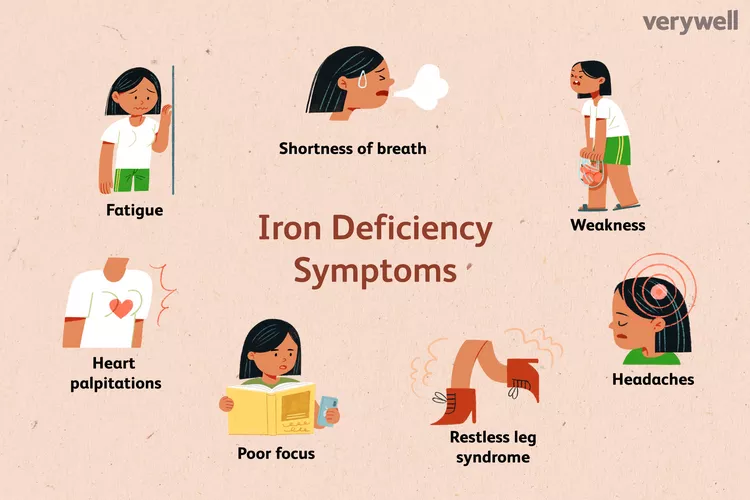
You Might Feel Tired Even After a Full Night’s Sleep
Iron helps your blood carry oxygen. When levels drop, energy disappears quietly.
You may wake up exhausted, even after resting for hours.
Tasks feel heavier. Climbing stairs becomes a little harder.
The fatigue isn’t dramatic. It creeps in slowly, almost politely.
You start blaming stress, weather, or poor sleep.
But inside, your body is simply asking for more oxygen.
Pale Skin Can Be a Quiet Signal
It’s not always noticeable at first. A slight paleness under the eyes.
Lips may look lighter. Fingernails lose their usual color.
Even your palms can turn a shade duller.
People might ask if you’re feeling okay, without knowing why.
Iron gives your blood its red richness. Without it, your color fades.
And that fade can be the body’s silent alarm.
Shortness of Breath Can Happen Without Warning
You’re walking, talking, or just standing still — and then comes the breathlessness.
It doesn’t need intense activity. Even mild effort can cause it.
The heart starts working harder, trying to push oxygen around.
Your lungs feel tight, even if they’re healthy.
You may not associate it with iron, but the link is strong.
And the body always finds ways to alert you.
You May Notice Strange Cravings
Some people crave ice. Others want chalk, clay, or even paper.
It’s not about hunger. It’s something deeper, harder to explain.
This condition has a name: pica. It often ties back to iron levels.
It confuses the brain’s signals, bending appetite into something unusual.
You may feel embarrassed or curious, not realizing it’s a medical clue.
But iron shapes more than energy — it can affect desires too.
Headaches Can Become a Regular Part of Life
Lack of oxygen in the blood can affect the brain.
It leads to tension, pressure, and dull, lingering pain.
You reach for painkillers, but they don’t always help.
The discomfort builds across days, not hours.
It’s easy to ignore or blame on screens and stress.
But recurring headaches may have deeper roots.
You Might Feel Colder Than Everyone Else
Even on warm days, your fingers stay cold.
You grab a sweater when others are fine.
Your body’s heat depends on blood flow.
And iron supports that flow with oxygen-rich delivery.
Without it, circulation becomes sluggish.
Cold hands might just be iron’s way of speaking softly.
Hair Loss and Brittle Nails May Appear
The body prioritizes vital organs. Hair and nails come last.
So when iron is low, they weaken first.
Strands fall faster. Nails break more easily.
You notice more hair in your brush, more cracks in your nails.
It doesn’t always mean something serious.
But it might be your first visible clue.
Your Heart Might Start Beating Faster
Palpitations can feel like a flutter, a thump, or a racing beat.
They show up when you’re resting, sitting, or trying to sleep.
The heart pushes harder to make up for less oxygen.
It’s not always painful, but it’s unsettling.
You may think it’s anxiety or caffeine.
But sometimes, it’s simply iron stepping out of balance.
Cognitive Fog Can Blur Daily Tasks
You forget little things more often. Words feel harder to find.
Focusing takes more effort. Finishing tasks feels slow and dull.
This isn’t always tied to age or stress.
Iron deficiency can limit oxygen to the brain.
That creates a quiet mental haze, not always obvious.
But once lifted, the sharpness returns quickly.
Your Immune System May Weaken
You catch colds more easily. Healing takes longer than before.
Your body needs iron to fight back and repair.
Without it, defenses lower quietly.
You may feel okay overall, just slower to bounce back.
It’s not dramatic, but it’s consistent.
And over time, infections become more common.
